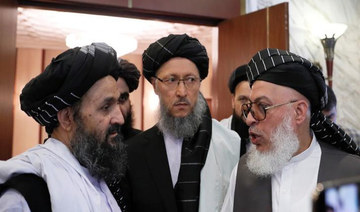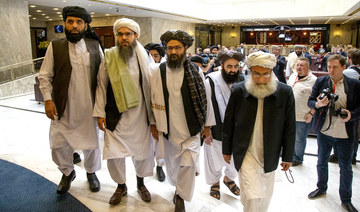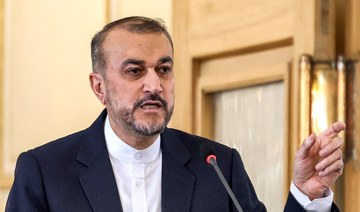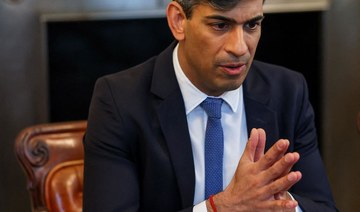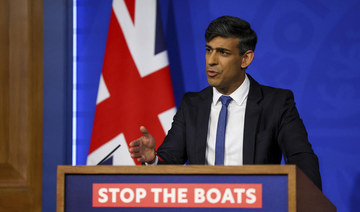KABUL: Afghans woke up to a week-long partial truce Saturday after the Taliban, the US and local forces all agreed to a lull that could be a major turning point in the long conflict.
If the so-called “reduction in violence” holds, it will be a major step toward withdrawing US troops after more than 18 years — and launching Afghanistan into an uncertain future.
“Afghans are tired of war,” Bismillah Watandost, a senior member of the grassroots People’s Peace Movement of Afghanistan, told AFP, calling on citizens to march and “demand an end to this tragic war.”
Many Afghans on Facebook were hopeful. “It’s a golden opportunity for Afghanistan to bring peace,” one, Abu Mahmood, wrote.
Both US Secretary of State Mike Pompeo and the Taliban issued statements on Friday saying they had agreed to sign an accord on February 29 in Doha, following the one-week partial truce.
“Upon a successful implementation of this understanding, signing of the US-Taliban agreement is expected to move forward,” Pompeo said, adding that talks between the Taliban and the Afghan government would “start soon thereafter.”
Afghanistan’s National Security Council spokesman Javed Faisal and Taliban sources said a “reduction in violence” between US, Taliban and Afghan security forces had been agreed.
The United States has been in talks with the Taliban for more than a year to secure a deal in which it would pull out thousands of troops in return for Taliban security guarantees and a promise to hold peace talks with the government in Kabul.
A reduction in violence would show the Taliban can control their forces and demonstrate good faith ahead of any signing, which would see the Pentagon withdraw about half of the 12,000-13,000 troops currently in Afghanistan.
“The Taliban must demonstrate their commitment to a meaningful reduction in violence,” US Secretary of Defense Mark Esper said on Twitter.
“Should the Taliban reject the path of peace, we remain prepared to defend ourselves and our Afghan partners,” he added.
A partial truce could also give a much-needed respite to civilians, who have long borne the brunt of the bloody war. The UN said last year that more than 100,000 people have been killed or wounded in Afghanistan in the last decade.
However details of what exactly such a truce will look like have remained scant.
In southern Kandahar province, seen as the Taliban heartland, one insurgent told AFP he had received orders to stand down.
However another Taliban commander there said he had only been ordered to refrain from attacking major cities and highways.
Any truce comes fraught with danger, and analysts warn the attempt to stem Afghanistan’s bloodshed is laced with complications and could fail at any time.
Worse still, they say warring parties could exploit a lull to reconfigure their forces and secure a battlefield advantage.
Since the US invasion in 2001 there has only been one other pause in the fighting — a surprise three-day cease-fire between the Taliban and Kabul marking the religious festival of Eid in 2018.
Afghans responded jubilantly, with Taliban fighters and security forces hugging and posing for selfies in previously unimaginable scenes around the country.
Civilians also flocked to greet the insurgents as they entered urban areas that they usually visit only to attack, including the capital Kabul, for ice cream and more selfies.
Afghan President Ashraf Ghani said Friday Afghan security forces would remain “on active defense status” during the week.
In a statement, the Taliban said warring parties would “create a suitable security situation” ahead of a deal signing.
The Taliban’s political spokesman, Suhail Shaheen, separately tweeted that the agreement would see “all” foreign forces leave Afghanistan.
But for now at least, the United States wants to leave troops in Afghanistan on a counter-terrorism mission to fight militia such as Daesh.
Taliban expert Rahimullah Yusufzai said the move signaled a change in thinking for both the Taliban and the United States after years of fighting.
“Both sides have shown their commitment to sign the peace deal, and it’s a big development,” he said.
The United States and the Taliban have been tantalizingly close to a deal before, only to see President Donald Trump nix it at the eleventh hour in September.
The attempt to stem Afghanistan’s bloodshed is laced with complications, including the fear that competing forces could exploit a lull to secure a battlefield advantage.
Since the US-led invasion after the September 11, 2001 attacks, America has spent more than $1 trillion in fighting and rebuilding in Afghanistan.
About 2,400 US soldiers have been killed, along with unknown tens of thousands of Afghan troops, Taliban fighters and Afghan civilians.
Partial truce begins in Afghanistan, boosting peace hopes
https://arab.news/rrhyx
Partial truce begins in Afghanistan, boosting peace hopes

- The truce is a major step towards withdrawing US troops after more than 18 years
- US has been in talks with the Taliban for more than a year to secure a deal
Modi accused of hate speech for calling Muslims ‘infiltrators’ at a rally days into India’s election
Modi accused of hate speech for calling Muslims ‘infiltrators’ at a rally days into India’s election

- Congress spokesperson says party has sought action from India’s election commission against Modi
- India’s election code of conduct forbids candidates to “appeal to caste or communal feelings” for votes
NEW DELHI: India’s main opposition party accused Prime Minister Narendra Modi of hate speech after he called Muslims “infiltrators” and used some of his most incendiary rhetoric to date about the minority faith in a campaign rally days after the country began its weekslong general election.
At the rally on Sunday in the western state of Rajasthan, Modi said that when the Congress party was in government, “they said Muslims have the first right over the country’s resources.” If it returns to power, the party “will gather all your wealth and distribute it among those who have more children,” he said as the crowd applauded.
“They will distribute it among infiltrators,” he continued, saying, “Do you think your hard-earned money should be given to infiltrators?”
Abhishek Manu Singhvi, a spokesperson for Congress, called the prime minister’s remarks “deeply, deeply objectionable” and said the party on Monday had sought action from the Election Commission of India, which oversees the six-week voting period. The first votes were cast Friday.
The remarks sparked fierce criticism for peddling anti-Muslim tropes, and for breaking election rules which bar candidates from engaging in any activity that aggravates religious tensions. The Election Commission of India’s model code of conduct forbids candidates to “appeal to caste or communal feelings” to secure votes.
Asaduddin Owaidi, a Muslim lawmaker and president of the All India Majlis-e-Ittehad-ul-Muslimeen party, said on Sunday: “Modi today called Muslims infiltrators and people with many children. Since 2002 till this day, the only Modi guarantee has been to abuse Muslims and get votes.”
Critics of Modi — an avowed Hindu nationalist — say India’s tradition of diversity and secularism has come under attack since his party won power in 2014 and returned for a second term in 2019. They accuse Modi’s BJP of fostering religious intolerance and sometimes even violence. The party denies the accusation and say their policies benefit all Indians.
But rights groups say that attacks against minorities has become more brazen under Modi. Scores of Muslims have been lynched by Hindu mobs over allegations of eating beef or smuggling cows, an animal considered holy to Hindus. Muslim businesses have been boycotted, their homes and businesses have been bulldozed and places of worship set on fire. Some open calls have been made for their genocide.
Modi’s remarks on Sunday were based on a 2006 statement by then-Prime Minister Manmohan Singh of the Congress party. Singh said that India’s lower-castes, tribes, women and, “in particular the Muslim minority” were empowered to share in the country’s development equally.
“They must have the first claim on resources,” Singh had said. A day later, his office clarified that Singh was referring to all of the disadvantaged groups.
Modi and his Hindu nationalist Bharatiya Janata Party are expected to win, according to most surveys. The results come out on June 4.
The Congress party’s president, Mallikarjun Kharge, described Modi’s comments as “hate speech.” “In the history of India, no prime minister has lowered the dignity of his post as much as Modi has,” Kharge wrote on social media platform X.
In its petition to the election commission, the party said that Modi and the BJP have repeatedly used religion, religious symbols and sentiments in their election campaign with impunity. “These actions have been further bolstered by the commission’s inaction in penalizing the prime minister and the BJP for their blatant violations of electoral laws,” it said.
The commission’s code of conduct is not legally binding on its own, but it can issue notices and suspend campaigners for a certain amount of time over violations.
“We decline comment,” a spokesperson for the commission told the Press Trust of India news agency on Monday.
In his speech, Modi also referred to a Hindu nationalist myth that Muslims were overtaking the Hindu population by having more children. Hindus comprise 80 percent of India’s 1.4 billion population, while the country’s 200 million Muslims make up 14 percent. Official data shows that fertility rates among Muslims have dropped the fastest among religious groups in recent decades, from 4.4 in 1992-93 to 2.3 between 2019-21, just a bit higher than Hindus at 1.94.
Modi’s BJP has previously referred to Muslims as infiltrators and cast them as illegal migrants who crossed into India from Bangladesh and Pakistan. Several states run by the BJP have also made laws that restrict interfaith marriage, citing the myth of ” love jihad,” an unproven conspiracy theory that claims Muslim men use marriage to convert Hindu women.
Through it all, Modi has maintained a conspicuous silence, which critics say has emboldened some of his most extreme supporters and enabled more hate speech against Muslims.
French court gives man suspended sentence for Iran consulate intrusion
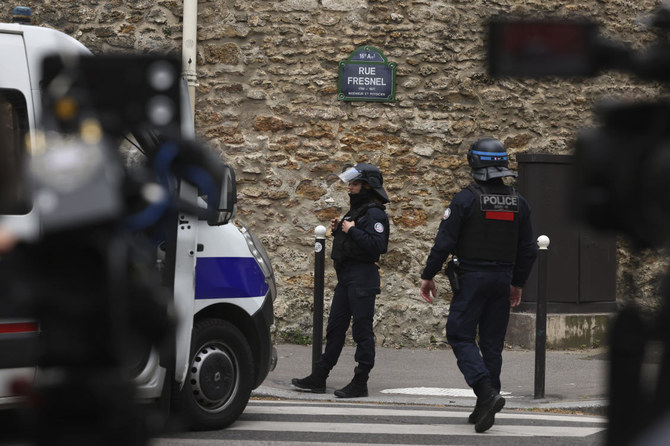
- The court banned him from carrying a weapon or approaching the consulate again
PARIS: A French court this week handed an Iran-born man a suspended 10-month sentence for entering the Iranian consulate in Paris with fake grenades in what he said was “revenge” for a crackdown at home that targeted his family.
The 61-year-old, a long-time resident of France who regularly attends Iranian opposition demonstrations, told the court he acted on Friday after learning the previous day that his sister had been arrested.
He said he had not wanted to “threaten anyone” but rather “take revenge” on the Iranian authorities, who he described as “terrorist.”
The court, in a ruling late on Monday, also banned him from carrying a weapon or approaching the consulate again.
Soldiers and police descended en masse on the neighborhood around the consulate on Friday after the mission reported an intruder entering with a grenade or explosive belt.
But police found no explosives on him or inside after arresting him.
A police source, who did not wish to be named, said the suspect had been wearing a vest with large pockets containing three fake grenades.
The judge said witnesses recounted the man “tearing down flags” and saying he “wanted to die.” Police negotiators managed to convince him to exit the building without his jacket.
A psychiatric expert found the man was of sound mind.
During his trial, the accused embarked on long tirades about the political situation in Iran, prompting the judge to remind him to “stick to the facts.”
The man had already been convicted for setting fire to tires in front of the entrance of the Iranian embassy in Paris in 2023, prosecutors said.
Citizens in the Islamic republic have endured increased repression since nationwide protests began in September 2022.
The demonstrations were sparked by the death in custody of 22-year-old Mahsa Amini, who was arrested for allegedly flouting the mandatory dress rules for women.
Executions — which activists say are a way to instil fear into Iranian society — have also continued apace.
At least 110 people have been executed this year alone, according to the Norway-based Iran Human Rights group.
At least five migrants die in attempt to cross English Channel
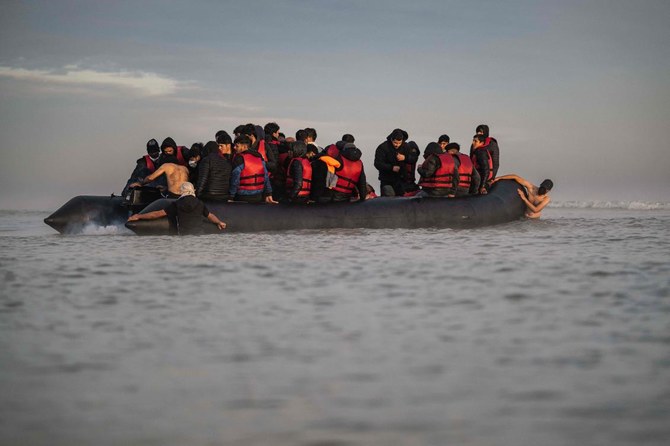
- People smugglers typically overload rickety dinghies, leaving them barely afloat and at risk of being lashed by the waves
PARIS: At least five migrants died in an attempt to cross the English Channel from an area near the French town of Wimereux on Tuesday, police said.
The French coast guard confirmed a police rescue operation had found several “lifeless bodies” following a failed attempt to cross the Channel.
A coast guard spokesperson said its agents were still operating at sea after what the official called a “busy” morning, with several crossing attempts.
The attempts took place after Britain’s upper house of parliament passed legislation on Monday night that will allow the UK government to send asylum-seekers to Rwanda rather than stay in Britain for processing.
Stopping the flow of migrants is a priority for British Prime Minister Rishi Sunak’s government, which says the Rwanda plan will act as a deterrent. Human rights groups and other critics say it is inhumane.
La Voix du Nord newpaper said about 100 migrants had been rescued early on Tuesday, with three helicopters and several rescue boats taking part in the operation.
Tens of thousands of migrants — many fleeing wars and poverty in Africa, the Middle East and Asia — have reached Britain in recent years by crossing the Channel in small boats on risky journeys organized by people-smuggling gangs.
The Channel is one of the world’s busiest shipping lanes and currents are strong, making the crossing on small boats dangerous.
The people smugglers typically overload the boats, leaving them barely afloat and at risk of being lashed by the waves as they try to reach British shores.
Asia hit hardest by climate, weather disasters in 2023— UN
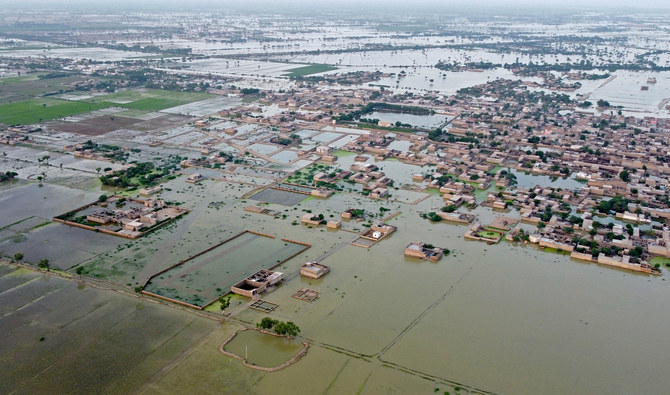
- Climate change exacerbated severity of weather disasters last year, sauys World Meteorological Organization
- 79 disasters, mostly floods and storms, associated with water-related weather hazards were reported in Asia in 2023
Geneva: Asia was the world’s most disaster-hit region from climate and weather hazards in 2023, the United Nations said Tuesday, with floods and storms the chief cause of casualties and economic losses.
Global temperatures hit record highs last year, and the UN’s weather and climate agency said Asia was warming at a particularly rapid pace.
The World Meteorological Organization said the impact of heatwaves in Asia was becoming more severe, with melting glaciers threatening the region’s future water security.
The WMO said Asia was warming faster than the global average, with temperatures last year nearly two degrees Celsius above the 1961 to 1990 average.
“The report’s conclusions are sobering,” WMO chief Celeste Saulo said in a statement.
“Many countries in the region experienced their hottest year on record in 2023, along with a barrage of extreme conditions, from droughts and heatwaves to floods and storms.
“Climate change exacerbated the frequency and severity of such events, profoundly impacting societies, economies, and, most importantly, human lives and the environment that we live in.”
The State of the Climate in Asia 2023 report highlighted the accelerating rate of key climate change indicators such as surface temperature, glacier retreat and sea level rise, saying they would have serious repercussions for societies, economies and ecosystems in the region.
“Asia remained the world’s most disaster-hit region from weather, climate and water-related hazards in 2023,” the WMO said.
The annual mean near-surface temperature over Asia in 2023 was the second highest on record, at 0.91 degrees Celsius above the 1991-2020 average, and 1.87 C above the 1961-1990 average.
Particularly high average temperatures were recorded from western Siberia to central Asia, and from eastern China to Japan, the report said, with Japan having its hottest summer on record.
As for precipitation, it was below normal in the Himalayas and in the Hindu Kush mountain range in Pakistan and Afghanistan.
Meanwhile southwest China suffered from a drought, with below-normal precipitation levels in nearly every month of the year.
The High-Mountain Asia region, centered on the Tibetan Plateau, contains the largest volume of ice outside of the polar regions.
Over the last several decades, most of these glaciers have been retreating, and at an accelerating rate, the WMO said, with 20 out of 22 monitored glaciers in the region showing continued mass loss last year.
The report said 2023 sea-surface temperatures in the northwest Pacific Ocean were the highest on record.
Last year, 79 disasters associated with water-related weather hazards were reported in Asia. Of those, more than 80 percent were floods and storms, with more than 2,000 deaths and nine million people directly affected.
“Floods were the leading cause of death in reported events in 2023 by a substantial margin,” the WMO said, noting the continuing high level of vulnerability of Asia to natural hazard events.
Hong Kong recorded 158.1 millimeters of rainfall in one hour on September 7 — the highest since records began in 1884, as a result of a typhoon.
The WMO said there was an urgent need for national weather services across the region to improve tailored information to officials working on reducing disaster risks.
“It is imperative that our actions and strategies mirror the urgency of these times,” said Saulo.
“Reducing greenhouse gas emissions and adapting to the evolving climate is not merely an option, but a fundamental necessity.”
UN officials urge UK to reconsider plan to transfer asylum seekers to Rwanda
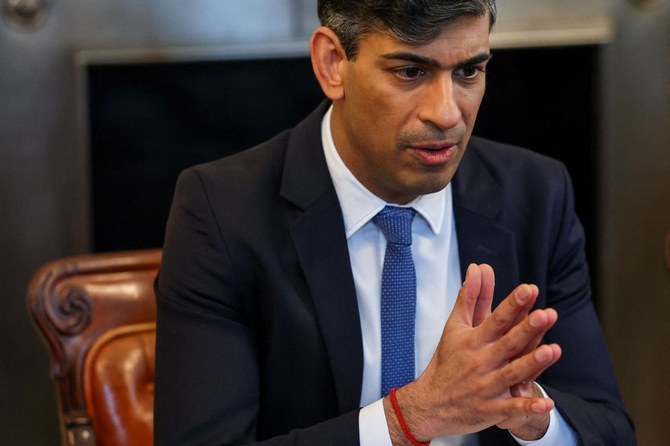
- UN called on the UK to instead take practical measures to address irregular flows of migrants and refugees
GENEVA: Two United Nations top officials on Tuesday called on the UK to reconsider its plan to transfer asylum seekers to Rwanda, warning the move would have a harmful impact on human rights and refugee protection.
In a joint statement, Filippo Grandi, the UN High Commissioner for Refugees, and Volker Turk, the UN High Commissioner for Human Rights, called on the UK to instead take practical measures to address irregular flows of migrants and refugees.
“The new legislation marks a further step away from the UK’s long tradition of providing refuge to those in need, in breach of the Refugee Convention,” said Grandi.
Turk, who has criticized the plan before, said that the legislation “seriously hinders the rule of law in the UK and sets a perilous precedent globally.”
British Prime Minister Rishi Sunak promised on Monday to start sending asylum seekers to Rwanda within 10 to 12 weeks as the upper house of parliament passed legislation that had been delayed for weeks by attempts to alter the plan.
Other countries are considering tough measures to stem illegal migration, with Italy planning to build reception camps in Albania for thousands of migrants arriving by sea.



